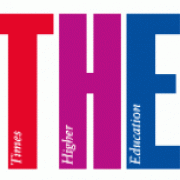You have /5 articles left.
Sign up for a free account or log in.
Early-stage researchers in South Korea are “significantly” more productive than those further on in their careers, a study has found, partly because the former are striving to gain tenured positions.
 Those with up to 10 years’ experience in “hard” subjects such as science, engineering and medicine published an average of eight articles every three years in international journals, but this fell to less than seven when they reached the “established” career stage (11-25 years’ experience).
Those with up to 10 years’ experience in “hard” subjects such as science, engineering and medicine published an average of eight articles every three years in international journals, but this fell to less than seven when they reached the “established” career stage (11-25 years’ experience).
A drop in publication rates was also seen in “soft” subjects, including humanities, social science and business, when academics became “established,” according to the paper, “Research Productivity by Career Stage Among Korean Academics.”
These data contradict previous studies that found the reverse – that more experienced researchers out-publish more junior colleagues – notes the paper by Jisun Jung, a postdoctoral fellow in the Faculty of Education at the University of Hong Kong. She cites studies that suggest “most academics feel that promotion and tenure are more strongly dependent upon research output, and that the quantity of publications is more important than the quality.”
“The nearer the time of promotion, the higher the publication rate, and, after receiving a promotion ... the publication rate declines,” the paper says. But it also advances another theory: that more experienced academics in South Korean universities were recruited before the 1990s, “when there were not enough highly qualified academics.”
Most of those hired since 2000, in contrast, have advanced degrees from overseas or research-intensive Korean universities during a period when there was a “high degree of emphasis on research performance.”
The research, published in the journal Tertiary Education and Management, also found that researchers with less than four years’ experience are “most productive at publishing in international journals” – following a push by the Korean government in the mid-1990s to get scholars to publish internationally.




